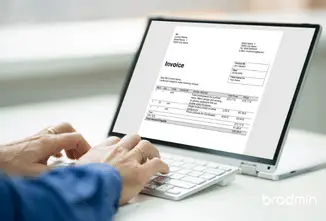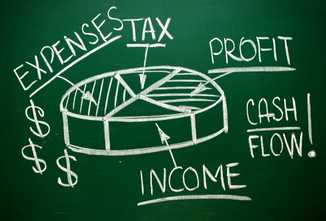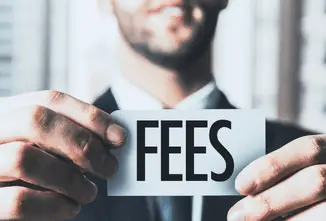It is obvious why you should pay your invoices on time. Paying on time enables you to improve your credibility and relationships with your suppliers. It is unethical to deliberately pay invoices later than the agreed times, and it is also wrong to do so.
There are many reasons that people give for late payments, such as struggling businesses, forgetfulness, disputes, etc.
When you consistently pay your supplier on time, you will essentially create an excellent working relationship that will come in handy during the times when you may be unable to pay.
In such cases, the customer will be more than willing to hear you out and give you ample time to come up with the funds.
You probably do not know that invoices that are left unpaid tend to have costly repercussions for you, such as late payment fees that are applied to the outstanding amount.
Now, the government has instituted additional charges for compensating the supplier if they incur any costs while recovering their debts.
What are the benefits of paying your invoices on time?
What happens if you don’t pay your invoices on time?
If you do not pay your invoices on time, the supplier has a right to take legal action against you to recover the debt.
Usually, when this happens, they will have sent you a statutory demand stating the outstanding amount, which gives you 21 days to pay the debt or come up with an agreement.
If you decide to ignore this demand, then after 21 days, the supplier will apply to bankrupt you or wind up your company.
Additionally, if you refuse to pay, here’s what could happen:
- If the amount owed is below £10,000, the supplier can submit a case against you to the small claims court.
- If the invoice is up to £100,000, they will be able to submit a claim to MCOL or Money Claim Online. MCOL is an HM Courts & Tribunals, which is internet-based and designed to help with solving collection claims without necessarily going through small claims court.
- The supplier may decide to work using a debt collection company to recover the debt, and this company will then be in touch with you to find ways of recovering the debt.
Other issues because of non-payment of invoices:
How to get clients to pay on time?
The first step towards ensuring that clients take payments seriously is to create a contract that contains very clear payment terms.
The contract should ensure that it outlines the most important details of the transactions and that each party must consent to the agreement before any work starts.
Without a contract, an invoice is not a binding document, and it cannot protect you from potential invoice disputes.
So, how to get your clients to pay on time?
Here are some tips you can use to get your clients to pay on time:
- Ensure that you have negotiated the best payment terms before the project starts
- Request the client for a deposit or an upfront payment before completion of work.
- Ensure that you have multiple payment methods.
- Be flexible with the client’s payment patterns.
- Offer them a retainer
- Ensure to invoice them as soon as possible.
- Follow up with them and always keep in touch.
- Maintain a good rapport with the clients all the time.
- Keep sending them reminders regularly that the invoice is due.
- Provide a slight discount when they pay early.
Law on late payment of invoices
Everything that has to do with late payment of invoices is covered under the 1998 act of late payment of commercial debts.
This law was enforced in November 1998, and ever since it was created, it has been amended several times to fall under the European Directive. The premise of the law, however, remains the same.
One point to note, however, is that the law is only applicable to commercial debs. Although it is not limited to companies, other businesses such as freelancers, sole traders, and entrepreneurs can use it.
The primary purpose is to ensure that all creditors are compensated in case of late invoices, and it also deters the clients from paying invoices late.
In a nutshell, the law prohibits late payment of invoices and gives the suppliers authority to charge interest and other compensatory charges for any late payments of invoices.
What is the Prompt Payment Code about?
The UK Government created the PPC or Prompt Payment Code in 2008 to respond to calls by businesses to change the payment culture.
This code established various principles that companies must follow when dealing with other companies, especially when paying their suppliers.
The code commits each business explicitly to pay fairly and on time. It was administered on behalf of the Department for Business Innovation & Skills by the Institute of Credit Management – ICM. [1] [2]
The code undertakes the following:
The advisory board
In 2014, a new Prompt Payment Advisory board was created and tasked to help strengthen the code.
Their primary duties included:
- Enforcement, improvement, and monitoring of the code
- Promoting awareness.
They are advising on whether a new update of the code is needed.
The Board Members included the following companies:
- Barclays
- Aviva
- Bury Council
- Confederation of British Industries
- City of London Corporation
- Fujitsu
- Forum of Private Businesses.
- Institute of Directors
- Greggs.
- Skanska
- Institute of Directors and,
- Stort Chemicals Ltd.
They were first tasked with implementing the proposals made in the spring of 2015, and they came up with a published timeline to implement the changes to the code.
Conclusion
So, what we are trying to say is that you SHOULD pay your invoices on time.
This is because it is far more beneficial to you when you do, and it will enable you to create a great working relationship with your suppliers and keep you in their good books, just in case you ever run into any troubles in the future.




![Apology letter for late payment to supplier [with examples] 4 apology letter for late payment to supplier](https://brodmin.com/wp-content/uploads/2021/09/apology-letter-for-late-payment-to-supplier.webp)
![Invoice payment terms - UK edition 2022 [+ Net calculator] 5 Invoice Payment Terms UK Edition 2021](https://brodmin.com/wp-content/uploads/2021/09/Invoice-Payment-Terms-UK-Edition-2021.webp)

![Simplified guide to the late payment directive [EU/UK edition] 7 late payment directive EU UK edition](https://brodmin.com/wp-content/uploads/2021/09/late-payment-directive-EU-UK-edition.png)




